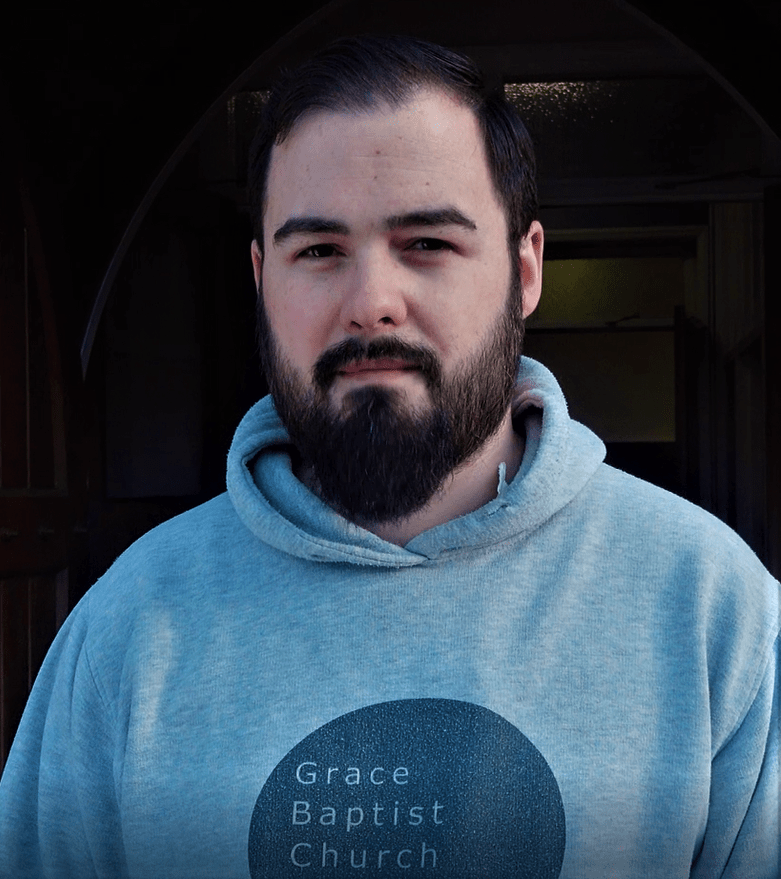In his Letter from a Birmingham Jail, Dr. Martin Luther King, Jr. delivered a scathing rebuke not simply of racism, but of quietism—the refusal of many to stand up and speak out for racial justice and equity.
“We will have to repent in this generation not merely for the hateful words and actions of the bad people but for the appalling silence of the good people.”
These words have long stuck with me. The first part states implicitly that we must repent of saying hateful words. The second part states explicitly that we should repent of not saying helpful words. Together both parts provide a helpful structure for thinking about hard things.
The hard things we must say to and about ourselves
No one is righteous (Romans 3:10). We have all sinned and fallen short of God’s glory (Romans 3:23). We have all treasonously rebelled against the Lord God, the High King of Heaven, and are deserving of his retributive justice. Every aspect of our being is in some way tainted by sin—and our words are not immune. In fact, our words often are the foremost manifestation of the darkness that resides within. As Jesus said to his accusers, “You brood of vipers! How can you speak good, when you are evil? For out of the abundance of the heart the mouth speaks” (Matthew 12:34).
The apostle Paul made a similar point more broadly of humanity apart from Christ: “The venom of asps is under their lips” (Romans 3:13). If we have been saved by grace through faith in Christ and are following Jesus, we should be different. Our speech should be reflective not of the venom of serpents, but the voice of our Saviour. The tongue has great potential, both to help and to harm. “The tongue is a fire,” James says (James 3:6). Fire can provide fuel, warmth, and light. But it can also destroy. “With it we bless our Lord and Father, and with it we curse people who are made in the likeness of God. From the same mouth come blessing and cursing. My brothers, these things ought not to be so” (James 3:9–10).
Have we spoken hateful things? Perhaps those things are prejudiced or racist. Perhaps we knew and spoke those things intentionally. Perhaps we didn’t know—but the impact was the same. It is common to deflect and deny when told, “That’s racist” or some equivalent, but self-examination and the confession and repentance it produces—while hard—is necessary. Or perhaps, more uncomfortably for racial justice and reconciliation activists, our righteous anger with racists and racism has at times crossed lines into unrighteousness. Important considerations of moral equivalence aside, the cause of truth, justice, and reconciliation is not in fact aided by our sinful intrusions. Sin in response to sin undermines our cause, however righteous and noble. Whatever the nature of our audible sins, if we have sinned we must confess our sins—and we can confess that they are indeed “sins”!—knowing that Jesus Christ is our advocate with the Father (1 John 2:1) and God is “faithful and just to forgive us our sins and to cleanse us from all unrighteousness” (1 John 1:9).
The hard words we must say to and about others
It is not only the hateful things that we have said for which we must repent, but the helpful things we have not said. If repenting of saying hateful things at a minimum means we stop saying those things, then repentance of not saying helpful things requires that we start saying those things. “Having put away falsehood, let each one of you speak the truth with his neighbour” (Ephesians 4:24). This apostolic encouragement is built on the foundation of Christ’s redeeming work and its reconciliatory implications; the truth that we speak to one another cannot be less than the proclamation of that message. It is therefore essential that Christians stand up and speak out, amongst other things, against racism and for its victims.
The early church era lacked the color-coded hierarchical constructs of the Renaissance Western European concept of “race” and “racism,” created to legitimize the enslavement of Africans and assert white supremacy. However, ethnic prejudice and inequitable social structures built around national origins and ethnicity were very familiar to early churches and are addressed throughout the New Testament. Affirmation of the unique divine image-bearing dignity of people that might be marginalised in certain settings is often at the heart of New Testament texts. For example, the division between Jew and Gentile-background believers could be severe, if not addressed with reconciliatory preaching and practice. A significant undercurrent of Paul’s epistle to the Romans is that Jewish lives do indeed matter. A vital aspect of his letter to the Galatian churches is that Gentile lives do in fact matter. These themes were not contrary to the gospel but part of its very goodness.
The Jewish Paul’s love for Gentile people and advocacy for them is particularly of relevance at this point. In Pisidian Antioch, Paul declared, “we now turn to the Gentiles” (Acts 13:46), to be “a light for the Gentiles” (Acts 13:47). In Corinth, again, “From now I will go to the Gentiles” (Acts 18:6). Paul had social grounds for claiming ethnic pride and privileges (cf. Philippians 3) but laid these aside to reach people different from him (1 Corinthians 9:19–23). This caused controversy in the Jerusalem church, and Paul’s efforts to soothe the worries of a contentious element worried that Paul had “gone all Gentile on them” is what eventually led to his arrest by the Jews, in the temple (Acts 21:17–26).
Most memorably however, is the occasion recalled in Galatians 2:11–14. The apostle Peter was eating with Gentile believers, and doubtless thoroughly enjoying it. A group of people arrived called “the circumcision party”—people who, if they had their way, would impose Jewish culture, traditions, and ideas onto Gentile believers in the name of Christ. Peter nervously withdrew, fearing their criticism. Other Jewish believers who had been enjoying rich fellowship with their Gentile brothers did likewise—even Barnabas, the “son of encouragement”! But not Paul. He saw what Peter did and found it quite intolerable. It didn’t matter that Peter had personally walked and talked with Jesus. It didn’t matter that he had been an apostle for longer and was something of an early Christian celebrity. His years of ministry experience and ecclesiastical status were inconsequential. “I opposed him to his face, because he stood condemned,” Paul writes (Galatians 2:11). He adds of the wider group that “their conduct was not in step with the truth of the gospel” (Galatians 2:14).
I read the story of Paul’s stand and cheer. But then I reflect on Peter and company’s behavior, look at the state of our contemporary discourse, and sigh. I search myself and confess my failings in this area but I try, so far as I am able, to be Paul in similar scenarios today. I am determined, God helping me, to not grow complacent or give in to weariness in doing the right things and saying the hard things. I pray for more men, when facing a Galatians 2:11 moment, to take a Paul stand. It is not easy in our own strength—it may risk familial fracture, fellowship, friendship, or finance. But what are these things if we forfeit all that we know to be good, and right, and true? Let’s choose faithfulness and communicate faithfully, even when it is hard.
Prayer Requests:
- Confess the harmful things you have said and the helpful things you have not said.
- Pray for wisdom and strength in the body of Christ to say hard but helpful things, specially when it counts.
- Pray for a deep unity that allows and enables hard things to be said, actually hears those hard things, and responds with repentance and renewal of relationship.











